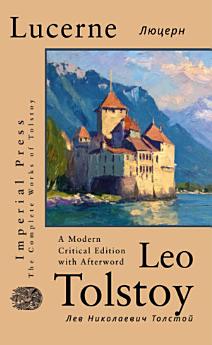Lucerne
About this ebook
First published in Sovremennik magazine in 1857, Lucerne (original Russian: Люцерн) stands as a compelling social critique rooted in Tolstoy's own European travels. This philosophical narrative, sometimes translated as "From the Recollections of Prince D. Nekhlyudov," emerged from Tolstoy's 1857 Swiss sojourn where he witnessed an incident that profoundly challenged his aristocratic sensibilities. The narrative centers on Prince D. Nekhlyudov's stay at the Hotel Schweizerhof in Lucerne. He observes a street musician performing old Tyrolean songs, to which a crowd listens intently yet offers no remuneration, instead resorting to mockery. Nekhlyudov's subsequent attempt to offer the musician hospitality by inviting him for champagne is met with social exclusion, as they are relegated to a common room where the musician faces further ridicule. This incident prompts Nekhlyudov to critique the purported liberalism of Europe and the republican laws of Switzerland, questioning the continued poor treatment of individuals perceived to be of lower social standing.
Set against the picturesque yet morally complex backdrop of 1850s Lucerne, the story juxtaposes the protagonist's privileged position with the harsh realities faced by the itinerant musician. Through this encounter, Tolstoy exposes the hypocrisy of societal hierarchies that value wealth over genuine human connection. The narrative serves both as a personal reflection and broader social commentary, questioning the ethical foundations of contemporary European society. While less celebrated than his monumental novels, Lucerne provides critical insight into Tolstoy's developing moral philosophy and his lifelong preoccupation with justice and compassion. Its exploration of class disparity and moral responsibility remains strikingly relevant in modern socio-political discourse.
This critical reader's edition presents a modern translation of the original manuscript, crafted for the modern reader with clean, contemporary language and simplified sentence structures that clarify his complex Russian phrasing and specific antiquated references. Supplementary material enriches the text with autobiographical, historical, and linguistic context, including an afterword by the translator on Tolstoy’s personal history, impact, and intellectual legacy, an index of the philosophical concepts he employs—emphasizing Existentialism and influence by Schopenhauer—a comprehensive chronological list of his published writings, and a detailed timeline of his life, highlighting the personal relationships that shaped his philosophy.











